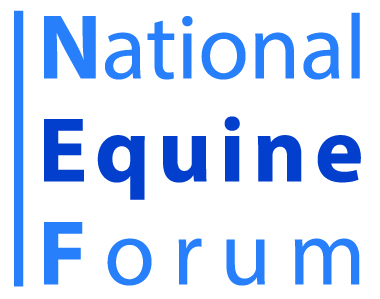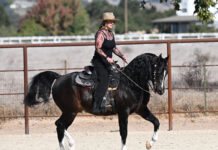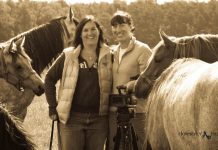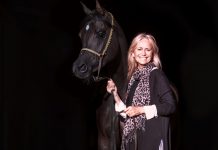A packed auditorium of over 200 delegates, together with an international live stream audience of more than 1200 from around the world, enjoyed a day of knowledge sharing and animated debate at this year’s National Equine Forum, held in London last week.
Lord Gardiner, Parliamentary Under-Secretary of State for Rural Affairs and Biosecurity at Defra opened the proceedings with an update on Defra’s current horse-related priorities in relation to Brexit. Defra has been working with the BHS and the British Horse Council to update the Code of Welfare and the licensing of Riding Schools. Defra has also been working closely with the Animal Health Trust on the global #onehealth initiative to mitigate the threats of zoonotic diseases and antimicrobial resistance.
Pamela Thompson Deputy Director for Portfolio and Preparedness at Defra presented a closer look at the implications of Brexit and what it may mean for the horse owner. She advised that in the event of Brexit owners should consult their vet six weeks before if they are planning to move an equine to the EU, explaining that they will need to pass through a Border Inspection Post, which may mean a travel route adjustment.
Stewart Everett, Chief Executive of Equine Register, led a comprehensive session on the Central Equine Database (CED), which they produce and manage for Defra. The Digital Stable is a data checking and verification system that allows Owners and Keepers to manage their equine data. This is scheduled to be launched in early April, providing better disease prevention, control and welfare through better data. He said: “One message you should take away from today – in order to protect you and your equines, please use the Digital Stable to ensure the data that is held about you on the CED is accurate. It’s free to check and this can be done at www.equineregister.co.uk”.
To bring breadth and real time case studies to the discussion he was joined by David Mountford, Chief Executive of the British Equine Veterinary Association who explained that the CED, Digital Stable and Equine Register’s Veterinary Application have massive potential as vets will be able to locate horses and communicate directly with the keepers of those horses, bringing more confidence to biosecurity issues. “We will have the potential to trace movement, enabling us to control disease outbreaks,” he said.
Dr Eva Maria Broomer, Head of Public Relations and Communications, Anglo European Studbook explained how the CED and Digital Stable will be of benefit to all studbooks saying: “A lot of horses have a number of studbooks associated with them. The benefit to the owner is that the Digital Stable will enable them to request that their data is updated through a single portal. The benefit to various studbooks is that we will all be informed once the data is approved by the controlling studbook, enabling all the studbooks associated with that horse to keep their data accurate and up to date and maintain a dialogue with the owner.”
Nic de Brauwere, Head of Welfare, Redwings Horse Sanctuary said that he saw the CED and the Digital Stable as an opportunity to educate horse owners who may be hard to reach; who may need help with management concerns.
Tristan Crago Head of Branch Equine Identification at Defra joined the panel for questions at the end of the session.

The highly topical equine health update saw Dr Richard Newton, Director of Epidemiology and Disease Surveillance at the Animal Health Trust discussing learnings from the recent equine influenza outbreak. He discussed the lessons learned from the 40+ confirmed outbreaks suggesting that laboratory capacity needs to be scaled up so when dealing with a new threat a lot more swab samples can be processed. He agreed that the CED and the Digital Stable should bring a great benefit through targeted disease messaging, vaccination record checking and pre-event registration to help halt the spread of disease. He concluded that vaccination and isolation are key, but that some of this messaging is being missed.
Dr Jane Nixon, Consultant Veterinary Surgeon and Director at the BEF went on to explain the development and role of the new BEF High Health Steering Group.
Dr David Sykes, Director of Equine Health and Welfare at the British Horseracing Authority discussed ‘A life worth living’ explaining the work the organisation is doing to ensure the best quality of life for racehorses. Summarising that the BHA’s strategy proves that we are being braver, bolder and accountable, to ensure racehorses have a life worth living.
Charities play an important role in the equine sector – from welfare organisations to those supporting other aspects of the industry such as therapy and education. The lively panel discussion How do charities fit into the modern world? was chaired by HRH The Princess Royal, with Jeanette Allen Chief Executive Officer The Horse Trust, Ed Bracher Chief Executive RDA, Emile Faurie Founder of the Emile Faurie Foundation and Professor Tim Greet Chairman of SPANA on the panel.
A series of questions were put to the panel: Paul Jepson, representing Retraining of Racehorses, asked: “Does the panel think that there are too many (equine) charities which necessitates spending large sums on marketing to compete against each other for a finite pool of public charitable giving.” Jeanette Allen pointed out that “Obviously there aren’t too many because we all still exist.” Emile Faurie made the point that “With social media it is hardly necessary to run expensive ad campaigns.”
Jessica Stark of World Horse Welfare asked: “How can charities work more effectively with their supporters and others to bring about change?” Emile Faurie answered: “We as a nation are incredibly generous when it comes to donating to charities. We need to take care of our supporters and one of the most important things is information. People want to know what they get for their money – our supporters know exactly what their money is getting.” Tim Greet added: “We are passionate about engaging with our supporters to refine our strategy for how we improve the way we do things”.
Rosie Mogford of Blue Cross asked: “With a spotlight on horse health (flu outbreak) and welfare in horse sport (whip use) what is the place of horse welfare charities in protecting our UK horses and ensuring the industry stays ahead of the game?” Jeanette Allen advised: “We need think about preventing the spread of disease like we do taking an extra minute to put a seatbelt on.”
Tim Brigstocke, Chair of NEF posed the question: “With such strict codes of governance applying to national governing bodies with regard to the appointment of non- executive directors, how do charities choose Trustees to ensure that they have the right balance of charity related and industry or business-related skills and knowledge?” Ed Bracher answered that charities need to be clear about the skills they want to bring onto your board and be clear about role requiring specific expertise; a passion of horses and the work of the charity isn’t enough. Diversity and representation are necessary.
The afternoon session was particularly beneficial to those involved in equine education, enabling delegates to benefit from practical take home content on horse and rider fitness, equine stereotypical behaviours, the initial findings from the National Equestrian Survey and the memorial lecture on farriery. These sessions will be covered in a further release.
HRH The Princess Royal summarised the day and announced the winner of Sir Colin Spedding Award as Gordon Wesley in recognition of his longstanding dedication to many aspects of the equine sector, both at home and abroad. Unfortunately Gordon was not well enough to attend the Forum so the Award was presented to his daughter Boo Powe on his behalf.
The day’s proceedings will be available to view soon at www.nationalequineforum.com
The 28th National Equine Forum will be held on Thursday 5th March 2020 at the Institution of Mechanical Engineers, One Birdcage Walk, Westminster, London.











